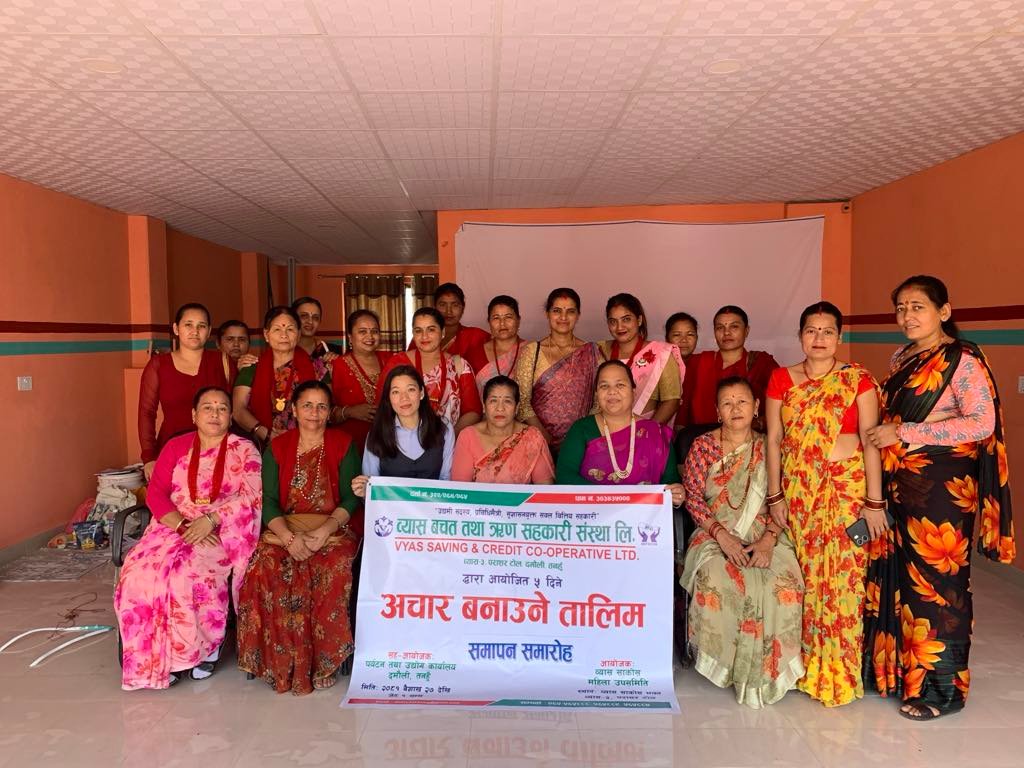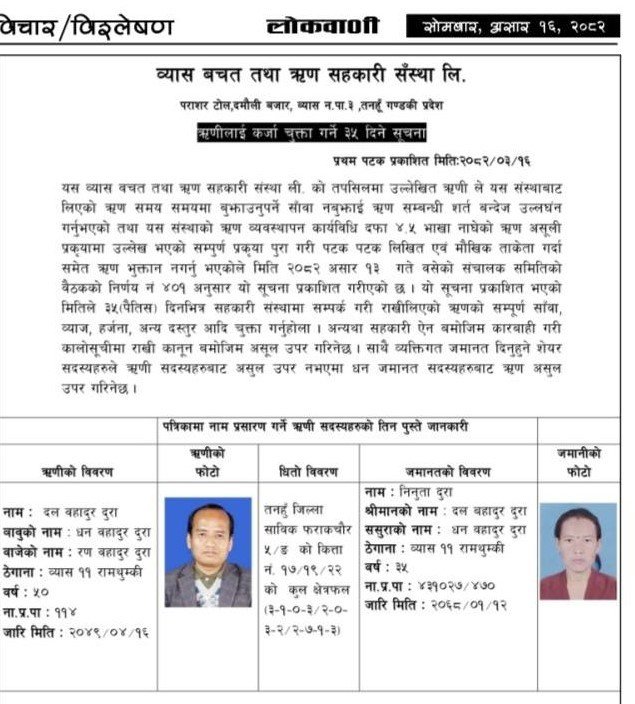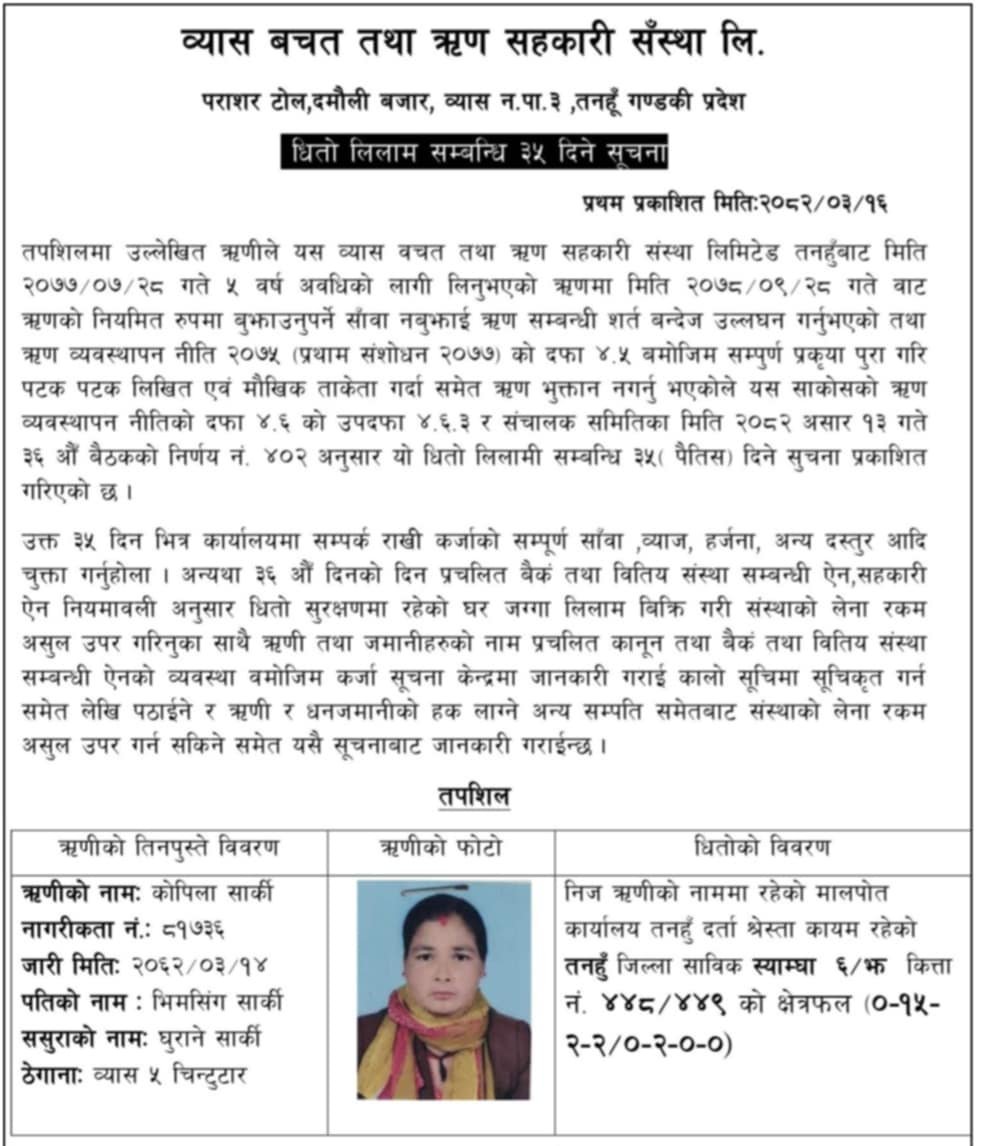Introduction

Welcome to Byas Saving & Credit Cooperative Ltd.
After the People’s Movement of 2062/63 B.S. (2005/2006 A.D.), establishing cooperative organizations in Damauli became something of a trend. Certain individuals began operating cooperatives with the sole aim of making profit, disregarding the principles, laws, and regulations that govern cooperatives. Amidst this wave, the editorial team of Lokvani Weekly — Prem Prasad Paudel, Pradeep Raj Adhikari, Prakash Chandra Bhattarai, Tribhuwan Shrestha, and Dhanraj Nepali — initiated discussions on running a cooperative institution.
At the same time, prominent local traders and entrepreneurs such as Banshi Kumar Shrestha, Mangal Prasad Shrestha, Ranjan Lal Shrestha, and Dwarika Shrestha were also engaged in talks about starting a cooperative. Rather than establishing two similar types of cooperatives simultaneously, discussions were held between both groups to unify efforts and run a single cooperative organization in accordance with cooperative values, principles, and the prevailing laws and regulations. Consensus was eventually reached on this matter.
An informal discussion held in the open grounds of Damauli during the sunny days of the month of Magh yielded meaningful conclusions. It was agreed that each member would contribute NPR 10,000 to register the cooperative. The name “Byas Savings and Credit Cooperative Society” was also unanimously agreed upon.
Prior to officially starting operations, a preliminary assembly and cooperative orientation training were conducted at the office of the Lokvani Weekly. The assembly formed an 11-member ad hoc management committee under the chairmanship of Banshi Kumar Shrestha and an audit supervision committee led by Mangal Prasad Shrestha. Thus, the cooperative formally began its operations from Padmachowk, Ward No. 2, Byas Municipality, Damauli.
Objectives
- To instill the spirit of frugality among the members of the organization and develop the habit of regular saving.
To enhance both the individual and collective capacities of the members and contribute to building a self-reliant and independent society.
To identify the primary needs and income-generating capacities of the members, promote investment through members in productive and income-generating sectors, and increase the utilization of dispersed national capital.
- To acquire, transfer, mortgage, or pledge movable and immovable properties as needed for daily operations in accordance with the Cooperative Act, regulations, standards, and the provisions of this statute, with the utmost focus on the collective and developmental interests of the members.
- To support the economic and social upliftment of the marginalized and low-income individuals or groups in the society.
- To promote social, cultural, educational, health, and environmental protection activities within the community.




